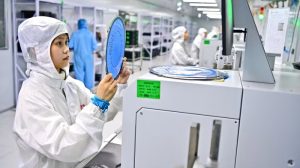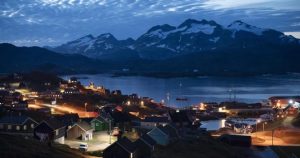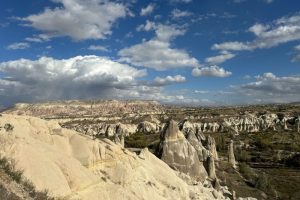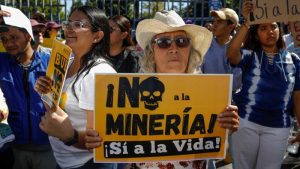soldiers accused of war crimes
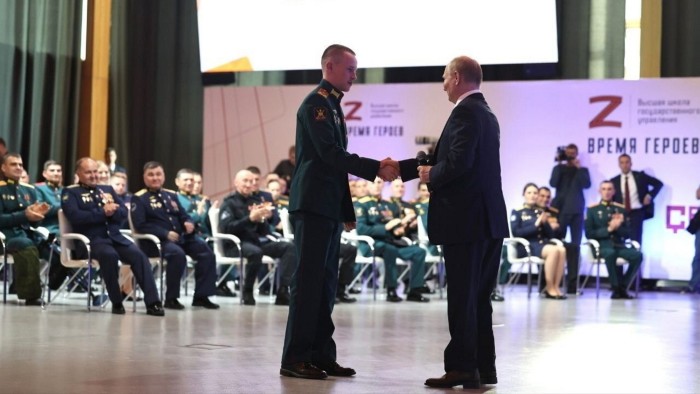
The programme had all the trappings of a corporate leadership course. Yuri Abayev and Timur Abutalimov went on field trips and site visits across Russia, played team-building games, and were tested on their management skills.
But the two men did not come to the training scheme from the world of Russian business. Instead, they joined it straight from the battlefield in Ukraine, where they fought with the Russian army and were accused by Kyiv of involvement in the killing of four Ukrainian prisoners of war.
Ukraine’s military agency publicly named the pair and three others in June, saying it had identified them in intercepted audio recordings related to the shooting in May. In the incident, also caught on camera by drone, four captured Ukrainian soldiers were shot at point blank range while lying on the ground.
Now, the two men are among a group of 83 handpicked combatants, commanders and veterans of the war in Ukraine taking part in a year-long management course that, in President Vladimir Putin’s words, aims to produce a “new elite” to govern the country.
Named the Time of Heroes programme, it has become one of the most highly-publicised Russian state projects of the year, curated by the Kremlin’s chief propaganda strategist, Sergei Kiriyenko.

It claimed to have received more than 44,000 applications from across the Russian armed forces this spring after Putin personally announced the idea in February, describing veterans of the Ukraine war as the most loyal, patriotic and reliable members of Russian society.
“They should be the ones taking up leading positions, whether in the education system, in non-governmental organisations, state companies, in business, in state and municipal administration,” Putin said.
The old elite, he said, should be replaced with military men. “Such people . . . can be trusted with Russia’s future.”
After several selection rounds, the final 83 were enrolled in months of lectures and workshops led by Russian officials, met Putin and his top aides, and travelled across the country — including on an icebreaker to the North Pole — before finally being allocated high-level internships and even jobs.
Carefully curated updates from the course, shared on social media and state TV, unfolded like the ultimate Cinderella story for wartime Russia. Ordinary soldiers appeared to soar up the career ladder, while the public learned that being patriotic could pay off in a major way.

Abayev and Abutalimov feature in the many official videos about the programme, talking to camera about their military experiences — Abutalimov describes how his unit “killed 40 Nazis from the Ukrainian armed forces” in one fight — and their favourite lectures from the course, such as a talk by state TV firebrand Vladimir Solovyov.
Other clips show the group ice swimming in the Arctic, meeting the Patriarch of the Russian Orthodox Church at a Moscow cathedral, or learning the ropes of factory management on the shop floor of a car plant, and participating in other business simulation exercises.
Abayev, a career soldier from the Russian Caucasus region of North Ossetia with the call sign “Buffalo”, first served in Syria before becoming deputy commander of a Russian regiment fighting in Ukraine.
In May, Abayev received the Hero of Russia medal, the country’s top civilian and military award. In a meeting with Putin, Abayev told the president he had named his third son Sarmat, an Ossetian name but also the name of Russia’s largest intercontinental ballistic missile.

Now, Abayev has been posted by the course to shadow his home region’s governor. “He teaches me like my father taught me,” Abayev said in a video. Abutalimov is likewise shadowing the governor of his home region Dagestan, and according to local social media channels, he is expected to be appointed the region’s deputy minister for religious affairs.
Ukrainian intelligence named Abutalimov as a member of the unit involved in the prisoner shooting, and Abayev as its commander. The FT could not independently verify the allegation.
Abutalimov did not respond to a request for comment. Abayev could not be reached for comment, but told Russian local media in January: “no man from my unit would ever lay a hand on a prisoner.” Russia’s foreign ministry has repeatedly denied allegations of POW killings by Russian soldiers as “propaganda” and “disinformation”, and has also accused Kyiv’s troops of the same crime.
Despite the fanfare around the Time of Heroes programme, so far just a dozen participants have been appointed to actual government jobs. The programme is more about generating “cosmic levels of PR”, said Ilya Shumanov of Transparency International, an anti-corruption campaign group.

Of the roles handed out, most sound more influential than they actually are. Many are related to community work, especially in the “hooray, patriotism!” category, Shumanov said.
One soldier was appointed acting Minister for Youth Policy in the Siberian region of Yakutia. Another became the head of a committee for sports education in the Altai region, also in Siberia.
“In reality, the bureaucracy doesn’t particularly like people from the military,” Shumanov said. “The challenges right now are too big.”
Among the few course alumni to receive genuinely influential government roles, none “started out as, say, a labourer laying railway sleepers, and then suddenly became the boss of Russian Railways,” Shumanov said.
In early November, when Ukraine invasion veteran Evgeniy Pervyshev was appointed acting governor of the Tambov region — a significant government job — much was made of his experience in the Time of Heroes programme.
But in reality, Pervyshev had already enjoyed a long and weighty political career before the war: he was a city mayor and then an MP in Russia’s Duma lower house before signing up to fight.

Outside the programme, however, the war is producing a gradual change of guard in the elite, said sociologist Kirill Rogov.
Across the Russian state, pragmatically-minded bureaucrats are being squeezed out by radical and aggressively ideological newcomers, who are more comfortable with the country’s anti-western turn and the ongoing war.
It is a shift that Putin welcomes, said Rogov, a researcher at the Institute for Human Sciences in Vienna.
“Putin wants to create a balance of power in the elites such that it would be impossible to change the country’s course in the case of his death,” Rogov said. “He wants the break with the west and the occupation of Ukrainian territories to be irreversible.”
By naming people like Artem Zhoga — a rough-spoken and thuggish member of Russia’s proxy separatist forces in eastern Ukraine — as presidential envoy to the Ural region, for example, and hailing them as “ideological models” for the rest of the country, Putin cements Russia’s new trajectory, Rogov said.
Some members of the old elite have served short stints on the front line to hedge their bets and shore up their patriotic credentials in the face of the challenge from new contenders like Zhoga.
During its primaries this autumn, Putin’s United Russia party automatically added 25 percentage points to the result of any candidate who had fought in Ukraine, to boost their chances. As a result, 380 soldiers became United Russia candidates, according to the Kommersant newspaper.
Despite this, in the actual elections just 34 Ukraine war veterans were elected to regional parliaments across Russia, taking about five per cent of the seats available.
The low result shows that there is pushback against this new elite, both from society and from the bureaucracy, Rogov said.
“Ordinary people in Russia don’t really want to think about the war,” and reminders of it, such as military candidates on the ballot, only serve to “irritate” them, Rogov said.
The traditional elite, fearing the radical newcomers, is also pushing back. “As a result, these appointees, these ‘heroes’, are actually quite disliked, they’re shunned and feared,” Rogov said.
#soldiers #accused #war #crimes

